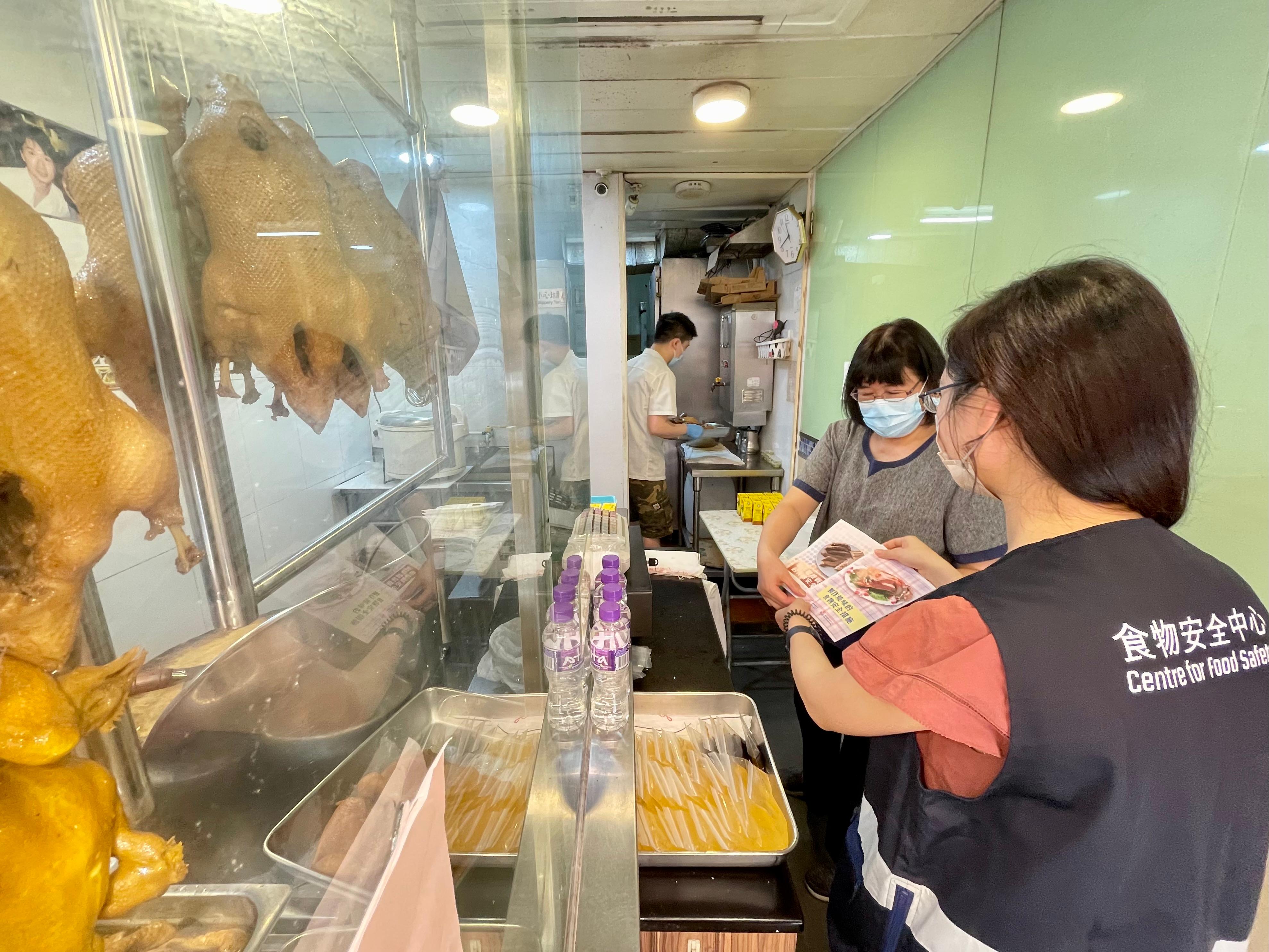CFS reminds public to keep an eye on food safety risks in summer (with photo)
*****************************************************************************
Most disease-causing bacteria thrive and reproduce quickly between 4 degrees Celsius and 60 degrees C, which is known as the temperature danger zone. Food contaminated with harmful bacteria can rapidly proliferate to dangerous levels at ambient temperatures, causing food to deteriorate quickly. High-risk foods, including ready-to-eat foods that do not require further cooking such as siu mei and lo mei, cooked rice and pasta; and raw or undercooked foods, such as oyster and sashimi, must be handled with care and should not be kept at room temperature for a prolonged period of time. To prevent bacteria growth, prepared food must be refrigerated at or below 4 degrees C or over 60 degrees C unless consumed immediately.
If the food cannot be kept in the above temperature range, the two-hour/four-hour rule must be followed. That is, if prepared food is kept at room temperature for less than two hours, it can be refrigerated for later use; if cooked food has been held at room temperature for more than four hours, it should be discarded. If the food needs to be chilled for storage after cooking, a two-stage cooling method can be used: cool the temperature of food from 60 degrees C to 20 degrees C in two hours, then from 20 degrees C to 4 degrees C in four hours to reduce the duration that food remains in the temperature danger zone.
The spokesman said, "Members of the public should not consume food to determine if it is safe or not, since the flavour or smell of the food does not always go bad even when bacteria that can cause food poisoning are at harmful levels. If in doubt, the public should throw the food away."
The spokesman reminded members of the public in particular that raw or undercooked foods are high-risk foods as there is not any, or inadequate, heat treatment to eliminate the micro-organisms present that can pose risks to human health. Raw or undercooked foods are also associated with the risk of contracting antimicrobial resistance (AMR) micro-organisms. Although these AMR microorganisms may not cause acute illnesses, they may transfer their antibiotic resistance genes to other bacteria inside the human body, therefore affecting the effectiveness of the future use of antibiotics when needed. Susceptible populations such as pregnant women, young children, the elderly and people with weakened immunity (i.e. people with chronic diseases or those on antibiotics treatment, antacid and long-term steroids or drugs given to prevent transplant rejection, etc) are of higher risk of being infected or having complications if they consume raw or undercooked foods due to their health status. They should therefore avoid eating raw and undercooked foods.
Members of the public and food businesses should pay attention to food safety, especially in summer, and observe the following "Five Keys to Food Safety" in order to reduce the risk of foodborne diseases:
- choose (choose safe raw materials);
- clean (keep hands and utensils clean);
- separate (separate raw and cooked food);
- cook (cook thoroughly); and
- safe temperature (keep food at a safe temperature).
Members of the public are also reminded to dine out in licensed and hygienic restaurants. Food premises selling sushi and sashimi or other high-risk food require a special permit. The public should patronise only those with relevant licences or permits issued by the FEHD. For more information on food safety, please visit the CFS's "Safe Food for All" thematic webpage (www.cfs.gov.hk/safefood).
Ends/Tuesday, May 30, 2023
Issued at HKT 19:34
Issued at HKT 19:34
NNNN





